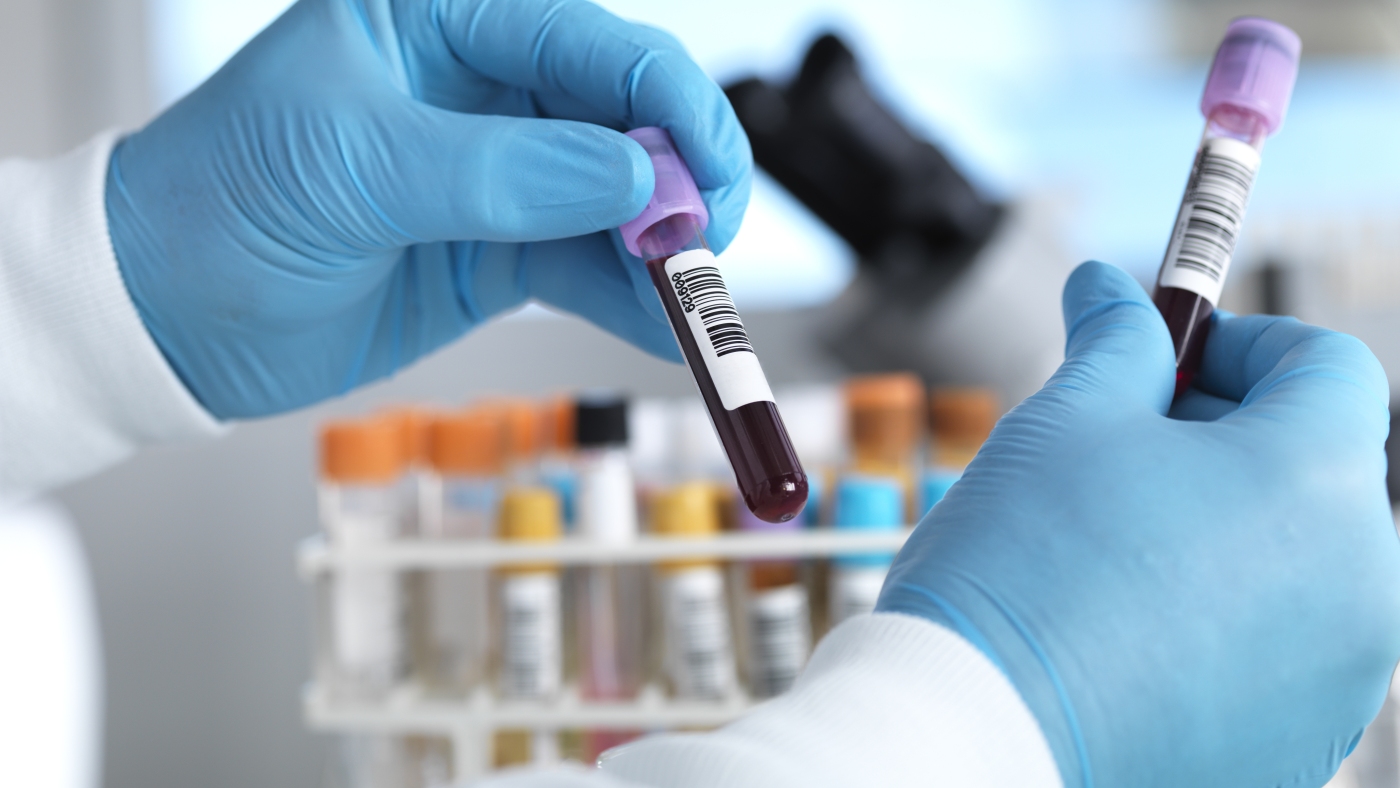
A survey of older People discovered that 79% would wish to know in the event that they have been within the early levels of Alzheimer’s, and 92% stated that if identified, they might in all probability or undoubtedly wish to take a drug that would decelerate the development. The outcomes could point out a latest shift in openness towards testing and therapy.
Westend61/Getty Photographs
cover caption
toggle caption
Westend61/Getty Photographs
Older People wish to know if they’re within the early levels of Alzheimer’s illness and would fortunately take a blood take a look at to seek out out, in keeping with a nationwide survey.
The survey of 1,700 individuals 45 and older, a part of a report from the Alzheimer’s Affiliation, discovered rising curiosity in testing, prognosis and therapy for the lethal illness.
Greater than 7 million individuals in the USA at the moment are residing with Alzheimer’s, in keeping with the report.
Among the many survey’s key findings:
— Almost 4 in 5 respondents (79%) would wish to know they’d the illness earlier than signs started to intrude with their each day actions.
— 80% stated they might ask a health care provider to be examined, somewhat than ready for a take a look at to be supplied.
— 91% stated they’d desire a blood biomarker take a look at, or another easy take a look at, if one have been accessible. (Most respondents didn’t know that a number of blood assessments already in the marketplace can point out the presence of amyloid plaques within the mind, an indicator of Alzheimer’s.)
— 92% stated that if identified with Alzheimer’s, they might in all probability or undoubtedly wish to take a drug that would decelerate the illness’s development. (Two just lately accepted medication, lecanemab and donanemab, can do that for individuals within the earliest levels.)
— 58% stated they might take an Alzheimer’s drug even when it had a reasonable or excessive threat of unintended effects.
— 83% stated that, if identified, they might be open to collaborating in a scientific trial of an experimental therapy to sluggish or treatment the illness.
— 81% count on that within the subsequent decade, therapies will arrive that may halt the development of Alzheimer’s.
— 44% say they’re frightened that insurance coverage is not going to cowl therapy and care if a take a look at signifies they’ve the illness.
A shift in perspective
The responses present that individuals are changing into much less afraid and extra proactive about an Alzheimer’s prognosis, says Elizabeth Edgerly, a scientific psychologist who directs neighborhood applications for the Alzheimer’s Affiliation.
Prior to now, Edgerly says her purchasers would typically say, “Nicely gosh, I would not wish to know,” or “Why would I wish to know?”
One motive for the change could also be that it is now simpler to seek out out.
Only a few years in the past, it took a PET scan or spinal faucet to verify the presence of sticky amyloid plaques within the mind, Edgerly says. Now, a easy blood take a look at can typically present the reply.
One other issue is the arrival of drug therapy for individuals within the early levels of Alzheimer’s, Edgerly says. That provides individuals another excuse to get a prognosis whereas they’re nonetheless able to making their very own selections.
Whereas signs are nonetheless gentle, Edgerly says, “they will articulate what they’d like for his or her future; they will determine whether or not they wish to strive therapies.”
The arrival of drug therapy has made individuals residing with Alzheimer’s extra optimistic, says Dr. Nathaniel Chin, a geriatrician on the College of Wisconsin who was not concerned within the survey.
“Even when it would not cease the illness in its tracks, it tells those that we’re making progress,” he says. “They wish to know in the event that they probably might have this remedy or possibly the following remedy or two therapies down the highway.”
The survey outcomes mirror modifications within the public’s angle towards Alzheimer’s that Chin is seeing in his personal follow.
“I do not assume individuals are as fearful as they’ve been prior to now,” he says. “I believe there is a want to know what’s taking place to our our bodies.”
Affected person-driven change
Many docs, although, stay skeptical about the advantages of testing. Chin says that is partially as a result of they see present medication as solely marginally useful.
“Some sufferers are forward of their docs on this regard,” he says. “They need this data and they’ll ask about it.”
Chin presents blood assessments to his personal sufferers with cognitive issues. And he expects the assessments to develop into more and more widespread.
However that’s more likely to convey some new challenges, he says. For instance, many well being professionals usually are not educated to counsel individuals who have simply discovered they’ve Alzheimer’s. And a optimistic take a look at end in somebody’s medical file has the potential to jeopardize their job or medical health insurance.
“There are protections for individuals who be taught their genetic data,” he says, “however as of now there usually are not protections for people who find themselves studying if you’re cognitively unimpaired or cognitively wholesome.”
Now that extra individuals are discovering out, he says, it is as much as teams together with the Alzheimer’s Affiliation to push for these protections.






